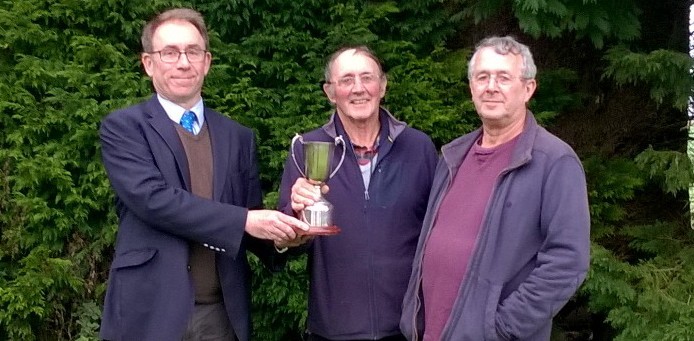The sample of Daytona peas, grown on contract for Lincolnshire-based international merchant Gleadell, claimed victory over 29 other entries to take top spot in the large blue pea category of the British Edible Pulse Association’s annual crop quality competition.
No one was more surprised than David Tyrrell, who with his brother Roderick grows wheat, oilseed rape and peas at Goose Farm, St Mary in the Marsh, Kent.
“The first we knew about the award was when Steve Harrison from Gleadell called to say we had won,” said Mr Tyrrell. “You could have knocked me down with a feather – I didn’t even know our peas had been put in the competition.”
The peas did look very good all season, he added. “We grew 20 acres and they yielded about 2t/acre and came off the combine looking bright and bold and didn’t even have to go over the cleaner. My brother is pretty good at setting up the combine and it certainly helped.”
Judges were looking for an even sample of the correct size, with a smooth unblemished skin of even colour, with no sign of insect damage.
“Samples that passed this test were then sent for a soaking test to determine their suitability for human consumption,” said Franek Smith of Lincolnshire-based pulse and seed specialist Dunns, who put the sample forward.
“The peas were top quality and I thought they had a good chance of winning,” Mr Smith added. “David and Roderick got everything right, and it was great to see their experience paying off.”
The brothers have worked at Goose Farm all their lives, taking over from their father in 1988. “We’ve both been taking our pensions for a while,” David quipped, “but this is the first time we’ve won anything like this.”
“We looked after the peas well and didn’t stint on inputs,” he added. “Our agronomist, Darryl Eames of Agrii, is very good and kept an eye on the crop every fortnight, so it was in good hands.
“We don’t have a lot of land by today’s standards but we own it all and we take a bit of pride in what we do.”
As with all things farming there was a bit of luck involved as well, Mr Tyrrell said. “You can do everything right but the weather has to be with you.
“But we’ll take all the luck we can get. We’re chuffed to pieces – I’m not sure quite how we’re going to follow this, but we are growing 30 acres of peas next spring. We’ll do our best and see how we get on.”
Winning crop agronomy
- 27 March – Daytona seed drilled into power-harrowed overwintered plough at 225kg/ha.
- Post-drilling – Avadex (tri-allate) granules at 15kg/ha to boost black-grass control
- Pre-emergence – Stallion Sync (clomazone + pendimethalin) at 2.5 litres/ha and Afalon (linuron) at 1.25 litres/ha to control grass and broad-leaved weeds.
- 4 April – Bentazone and Butoxone (MCPB) both at 2 litres/ha to control late weeds emerging from depth
- 21 April – Alert (alphacypermethrin) at 150ml/ha to control pea and bean weevil, plus manganese
- 11 June – Aphox (pirimicarb) at 280g/ha to control pea aphid, plus manganese
- 25 June – Alto Elite (chlorothalonil + cyproconazole) at 1.85 litres/ha to control grey mould and Alert at 100ml/ha to control pea moth, plus manganese
- 7 August – Crop combined at 14.5% moisture
Pictured: Gleadell’s Steve Harrison presents the BEPA cup to David (centre) and Roderick Tyrrell




